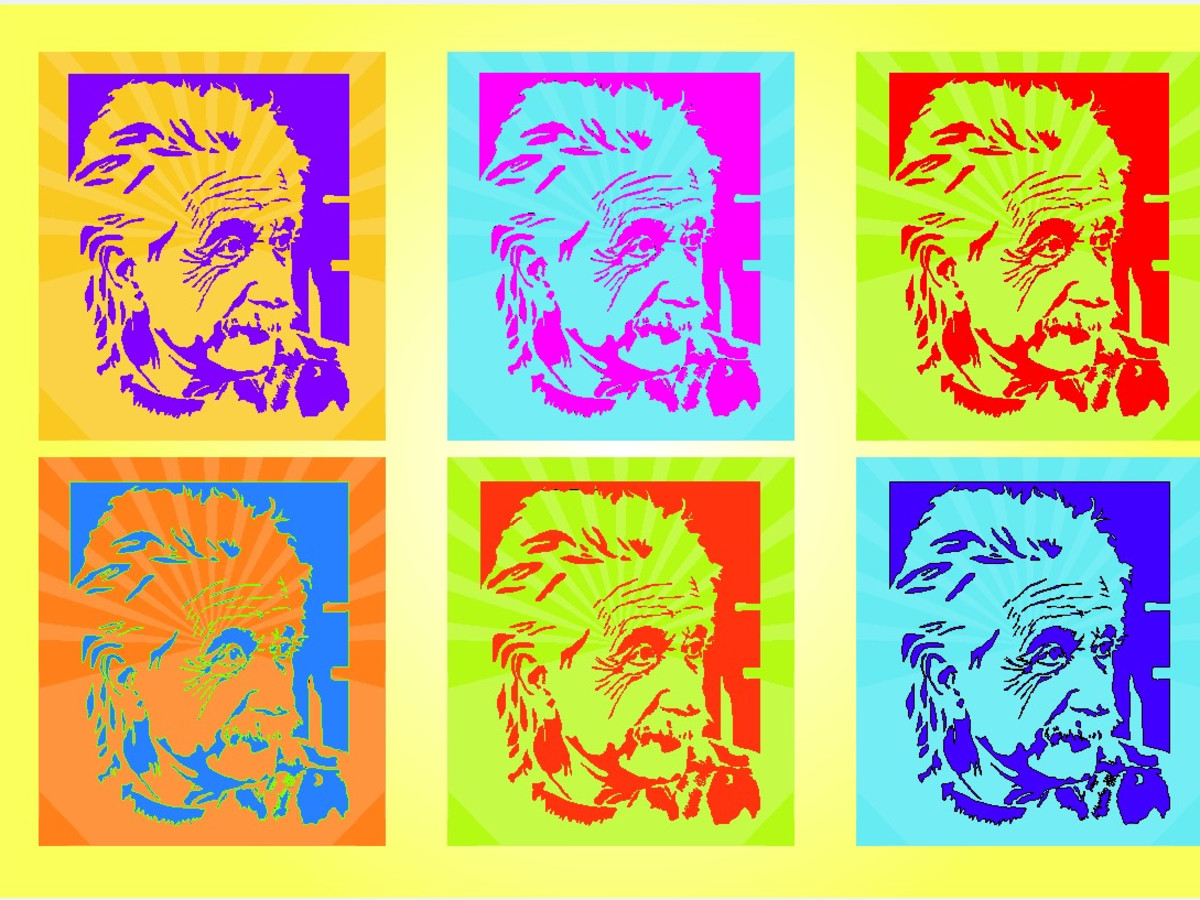
The unicorns of creativity - Part 3
Francesco Marcatto15 Aug 16
Is it true that geniuses are, well, a little crazy?
According to the popular myth, the answer is yes. Think about the picture of Einstein with wild hair, sticking out his tongue, or John Nash's paranoid schizophrenia, as depicted in the popular film 'A Beautiful Mind'.
The common view is that creativity, genius and madness are somewhat related. Great artists and scientists are expected to be more prone to psychiatric disorders, whether it be schizophrenia, substance abuse, psychosis or any other form of deviant behaviour.
Backed by science?
This view was also dominant in the scientific world until recently, but been challenged by the work of scholar and musician Judith Schlesinger (Schlesinger, 2009; 2012; 2014). In her studies, she showed that the research proving the creativity-madness link is seriously flawed by several methodological issues.
A common problem, for example, is the lack of clear definitions. It’s easy to see that it could be difficult to define creativity, genius, and even mental illness, but in order to have reliable results you need to have standardized and well accepted measurements. Many studies simply don’t have that.
The studies also used very small convenience samples, that is only people who were personally known to the researcher, so that results cannot be generalized to the population at large. She found also that some studies lacked a control group and have no statistics at all!
A good story?
In conclusion, there is no empirical support for the mad genius myth, so it's no more than a negative stereotype, reinforced by some anecdotes and our own tendency to fall for the confirmation bias. It also makes for a good story! Many creative geniuses have had serious psychological problems, and these tragic stories capture our attention. Hell, they made a film about a mathematician working on game theory! Seriously, if Nash hadn’t suffered from paranoid schizophrenia, would someone ever have thought to make an Hollywood movie about him?
Creative and NOT crazy?
The majority of creative people however, have no relevant mental problems. No more so than the rest of the population! We just don't notice the absence of psycho-social problems. The lives of ordinary highly creative people don't become subjects of films, nor do they have biographies written about them. They are just not interesting for the wider public.
For example, as reported by psychologist Carol Tavris in an article about the persistent myth of the mad genius, the great jazz saxophonist Bud Shank said in an interview that two writers had to give up the project of writing his biography,
'...they couldn’t find anything wrong with me. I haven’t been in jail, I haven’t been an alcoholic, I haven’t done anything nasty—so in their eyes, as far as what sells books about jazz musicians, there was nothing to write about. Ever since Van Gogh cut his ear off, everybody thinks an artist has to be a hurt artist. It’s like you’re no good otherwise.'
You’re smart but...
There is also another factor reinforcing this myth: the compensation hypothesis. We (secretly) want the great benefits of having a superior intellect and or being ahead of your time to be balanced by some disadvantages, from being absent minded to suffering from some kind of mental disorders.
For us non-gifted human beings, the idea of the rebel genius is both romantic and reassuring, 'yeah, they are great, but look at their miserable lives. I’m not not sure I would exchange mine with theirs'.
Unfortunately reality is different! There are some truly gifted people, and they’re no more likely to suffer from mental disorders than anyone else.
Anything we can learn?
So far we have discovered that a high creativity is not associated with an increased probability of suffering from mental illness. Are there any traits which are commonly found in geniuses and highly creative people?
The best answer we can give, following the available evidence, is that usually geniuses are typified by having strong self-discipline, tenacity, organization and calmness (all the opposite of psychotic!), and creative people are especially typified by having a strong motivation and determination in their work (Rothenberg, 1990).
So, as Carol Tavris wrote, 'At the heart of a genius lies motivation, hard work, and persistence. How obvious, how annoying, how unromantic!' (Tavris, 2015).
Read more false myths, urban legends and other delusions about creativity and the mind:
- The unicorns of creativity - Part 1
- The unicorns of creativity - Part 2
- The unicorns of creativity - Part 3
References
- Rothenberg, A. (1990). Creativity and madness: New findings and old stereotypes. Johns Hopkins University Press.
- Schlesinger, J. (2009). Creative mythconceptions: A closer look at the evidence for the" mad genius" hypothesis. Psychology of Aesthetics, Creativity, and the Arts, 3(2), 62.
- Schlesinger, J. (2012). The insanity hoax: Exposing the myth of the mad genius. NY: Shrinktunes Media.
- Schlesinger, J. (2014). Building connections on sand: the cautionary chapter, in J.C. Kaufman (Ed.), Creativity and Mental Illness. Cambridge: Cambridge University Press.
- Tavris, C. (2015). The gadfly: the persistent myth of the mad genius. Skeptic (Altadena, CA), 20(1), 6-8.







